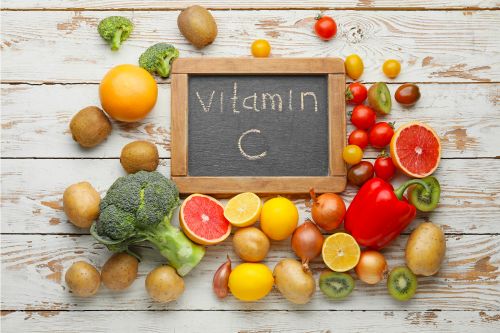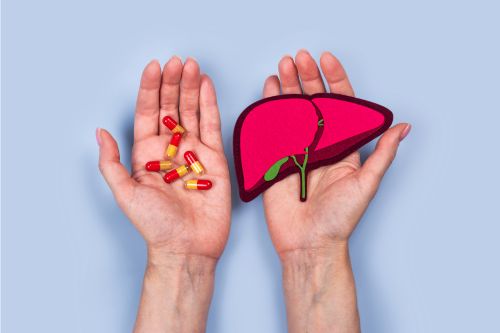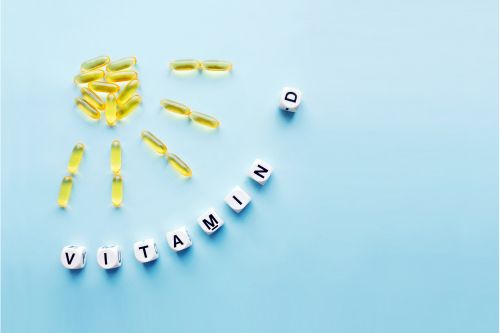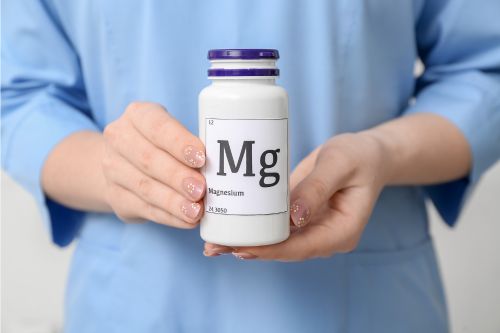7 Min Read
How to Get Rid of a Cold Fast (the Natural Way)

Getting over a cold can be a struggle, especially if you’ve got a busy lifestyle or you’re not in optimal health. If you’re currently under the weather, you’re probably wondering what it’ll take to get you back on your feet fast.
The good news is that there are several things you can do — like taking vitamins and getting plenty of rest — to start feeling better without taking Tylenol or trying to do too much too quickly.
Even a mild cold can stop you in your tracks, affecting your work and your personal life. It can lead you to spend days on end sleeping, blowing your nose and generally feeling pretty low. So how can you get rid of a cold fast, and what’s the best way to get rid of a cold the natural way?
Understanding the Common Cold
To beat a cold, you’ve got to understand how a cold affects your body. Understanding when and how you’re most likely to get a cold, why a cold makes you feel so lousy and what you can do to mitigate your symptoms will help you get rid of colds faster.
When Are You Most Likely to Get a Cold?
Most people get colds during the winter months, but colds don’t take a holiday — you can get a cold at any point during the year. Although you could end up with a snivel in spring or summer, it’s more likely that you’ll get sick during the colder months because viruses spread more easily in colder conditions. When the temperature drops, the Human Rhinovirus (HRV) — the most prevalent strain associated with the common cold — has a higher chance of survival, making people more susceptible to becoming infected.
How Can You Prevent Yourself from Getting a Cold?
The best way to stave off a cold is to make sure your immune system is as strong as it can be. You can bolster your body’s natural defences by eating a balanced diet with plenty of fruits and vegetables, keeping on top of your vitamin intake, reducing stress, getting enough sleep and exercising regularly.
All this can be something of a balancing act, especially if you’ve got a stressful job, young children or other challenging responsibilities — or all three — but you’re most likely to get a cold when you’re run down. When you’re physically and emotionally exhausted, your immune system is more likely to be compromised and colds can make an unwelcome appearance in your life. So how can you tell if you’re coming down with a cold?
What Are the Symptoms of a Cold?
Being aware of the common symptoms indicating that you might’ve caught a cold can help you take control of the situation, allowing you to be proactive, preventing the spread of the virus and helping to speed up your recovery.
In the early stages of a cold, you’re likely to feel achy and drained. You might also have a tingly or scratchy throat as your body starts to fire-up its natural defences to fight off the infection. For a few days, you’re likely to feel fatigued due to the extra energy that your body is using to combat the new infection.
Once you’re in the “active stage” of a cold, you’ll probably experience the following symptoms:
- Coughing — The most obvious sign that you’ve got a cold is a new persistent cough as your body tries to clear your airways.
-
A Sore Throat — This can vary from a tickly feeling to an unpleasant burning sensation in the back of your throat.
-
Congestion — Your nose, chest and sinuses can feel blocked. Nasal congestion can be remedied by regularly blowing your nose to clear your sinuses.
-
A Runny Nose — As your body fights the infection, it produces histamines that cause your nose to produce more mucus, usually resulting in the need for lots of tissues.
-
Fatigue — You’ll probably feel pretty drained, but resting will help you overcome infection by allowing your body to focus on recovery.
- A Loss of Appetite — A cold can affect your sense of smell and taste, leading to a decreased interest in eating.
- Aches — Sore muscles and achy joints result from the body's immune response to a virus. Inflammation throughout the body can occur as your white blood cells attack the infection.
- Chills or Fever — Your core body temperature rises ever so slightly when you get an infection. This is part of your body’s natural defence mechanism.
How Long Does a Cold Last?
The symptoms described above can range from slightly annoying to severely unpleasant. If you’ve got a cold, you’ve probably asked yourself, “how long does a cold last?”. Some colds shift in a matter of days, but most colds shouldn’t last longer than 10-14 days from infection to recovery. This time scale can vary, but if symptoms persist for much longer, you should speak to a doctor as it could indicate a more serious condition.
How to Get Rid of a Cold Naturally
While it might be tempting to reach for the heavy-hitting pharmaceuticals to ease your suffering, taking too many painkillers can seriously affect your wellbeing. Luckily, there are a few handy tips and tricks that can help you get rid of a cold naturally without opening your medicine cabinet.
1. Drink Lots of Fluids: Having a cold can cause dehydration, which is why it’s important to replenish any fluids that are lost throughout the day. Drinking plenty of water helps relieve nasal congestion by loosening the mucus created and allowing the body to defend itself more effectively against the cold. Herbal tea — like Pukka Lemon, Ginger and Manuka Honey — can also have a decongestant effect, helping you get rid of a stuffy nose and a sinus headache.
Fresh fruit juices will also help you on your way to a speedy recovery but contain high amounts of sugar, so stick to water as your primary source of hydration.
2. Take Vitamin Supplements: Vitamin C, vitamin D and zinc are essential when it comes to fighting off a cold. Vitamin and mineral supplements help you effectively deal with infections by supporting your body’s immune response, speeding up your recovery. Studies have shown that zinc and vitamin D reduce the duration of a common cold by up to a full day, especially if they’re taken soon after the first symptoms are discovered.
The same study also showed that zinc supplementation could reduce colds in children under 10-years-old by up to 53%, proving the importance of such a vital mineral in our overall health, no matter our age.
3. Eat Healthy Foods: Contrary to popular belief, you should in fact, “feed a cold, and feed a fever”. Your body needs more energy to deal with the offending infection, so it’s important to give your immune system the fuel it needs to get you back to health.
Although your sense of taste and smell may be impaired, you’ll speed up your recovery by eating vitamin and nutrient-rich foods like oranges, bananas, strawberries, cranberries, blueberries and blackberries, as well as leafy green vegetables like spinach, broccoli and kale, which are also a great source of iron. You also need plenty of protein to help strengthen your body’s defences, which can be found in salmon and avocados. Lemon, ginger and honey are also good for a sore throat when prepared as a tea.
4. Get Plenty of Rest: When you’re awake, your body uses energy to fuel numerous physical and mental processes, but while you’re asleep, you enter a much more relaxed state that allows your body to focus on fighting the illness. It might well have been a lack of sleep that made you unwell in the first place, so you must get enough rest to overcome your cold more quickly.
If you’re usually an active person, it can be hard to slow down — even when you’re sick — but making enough time to rest can jump-start your immune system, allowing you to get back to your normal life as soon as possible. If you struggle with sleep, whether that’s because of stress or other factors, sleep supplements can help you drift off naturally, like BestVitamin’s Magnesium Bisglycinate.
5. Treat Sources of Pain: Colds can be uncomfortable, so do what you can to make yourself feel better by treating specific symptoms as and when they arise. Vitamin lozenges can work wonders for a sore throat and specially formulated nasal sprays can help relieve sinus congestion and inflammation of the nasal passages. Over-the-counter pain medications like paracetamol work by inhibiting your brain’s pain receptors, causing you to feel less pain, but they come with an array of adverse side effects and should only be used sparingly, if at all.
Conquering Colds the Natural Way
While colds aren’t unavoidable, there’s a lot you can do to protect yourself and your family from bouts of illness with natural supplements, healthy eating and practising good hygiene, like washing your hands and covering your mouth if you have a cough. If you’ve been struck by a cold, taking vitamins can enhance your recovery, as well as help you avoid colds in the future by bolstering your immune system with the essential elements it needs to function effectively.
Need to get rid of a cold fast? Discover our range of natural health supplements, herbal teas and decongestants that’ll help you get back on your feet in no time. Get free and fast delivery on orders over $59.



